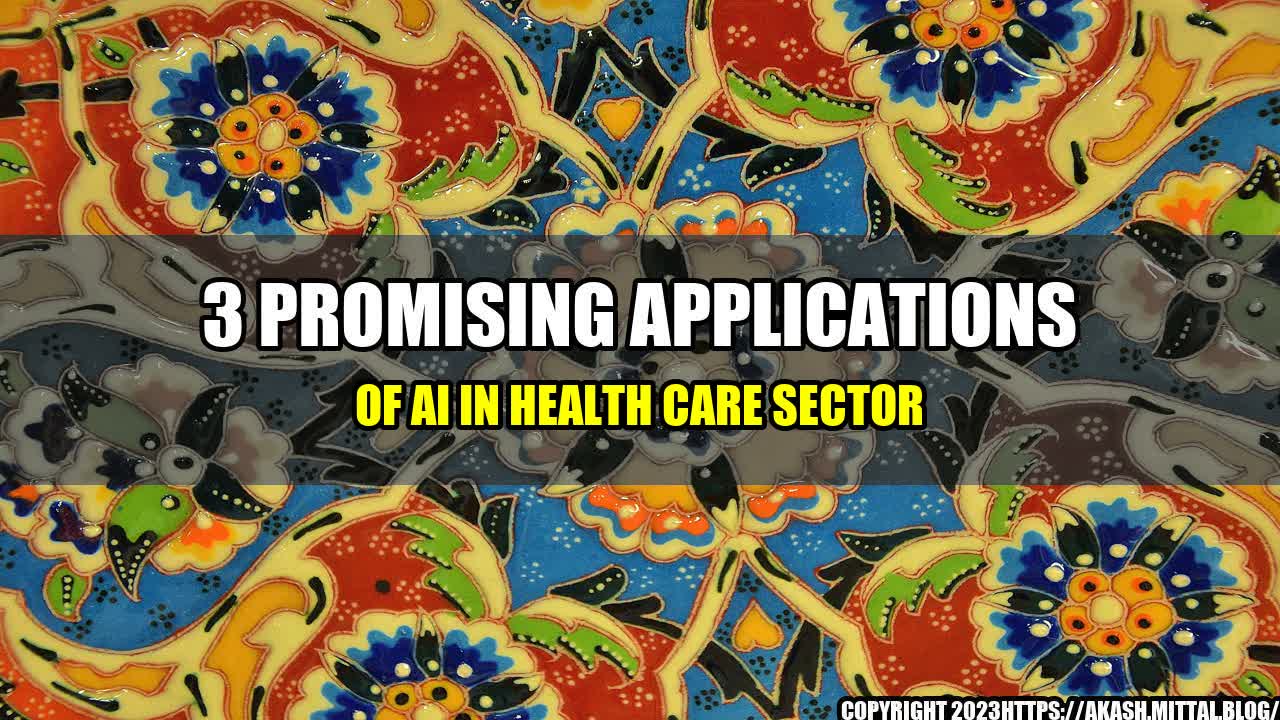It's a terrifying experience to be diagnosed with a rare disease, one that only a few doctors in the world can treat. That's the position that Adam found himself in. He had a rare genetic medical disorder that only a handful of specialists in the world could diagnose and treat. He went from hospital to hospital, from doctor to doctor, and failed to find a solution to his problem.
Until he met Dr. Jane, who was using AI to diagnose similar cases. Dr. Jane fed all the data from Adam's tests into her AI program and within minutes, she had a diagnosis. AI helped Adam to find a treatment that could improve his life. This story is just one example of how AI is helping the healthcare sector to improve people's lives.
1. Personalized Medicine
AI is helping the healthcare sector to develop personalized medicine, a treatment plan that is tailored to individual patients. AI can analyze a patient's genetic data and other medical information to identify the most effective treatment for them. Personalized medicine is already being used to treat cancer patients. AI can help doctors to identify the best drugs to use in chemotherapy based on the patient's genetic makeup and other factors. Personalized medicine can also help to reduce the risk of side effects and improve outcomes for patients.
For example, a company named Insilico Medicine used AI to develop a drug in just 46 days. It was tested successfully on animals, and it is expected to enter human clinical trials soon. This drug was developed by analyzing large amounts of data using AI. The drug was designed to target a protein that is linked to age-related diseases such as Alzheimer's and Parkinson's. The use of AI in drug development can help to speed up the process and improve outcomes for patients.
2. Medical Diagnosis
AI is also being used to improve medical diagnosis. AI algorithms can analyze large amounts of medical data, such as X-rays, CT scans, and MRI images. AI can identify patterns that may be missed by humans. These algorithms can help doctors to detect diseases such as cancer at an early stage, which can increase the chances of successful treatment. AI can also help doctors to identify diseases that have a genetic basis, such as Huntington's disease.
For example, Google AI has developed an algorithm that can detect breast cancer with a high level of accuracy. The algorithm was trained on mammograms from thousands of patients. AI was able to identify patterns that were not visible to the human eye. The algorithm was then tested on a dataset of mammograms from different hospitals. It was able to reduce false positives by 5.7% in the US, 1.2% in the UK, and 1.6% in South Korea. The use of AI in medical diagnosis can help to improve outcomes for patients and reduce costs by detecting diseases early.
3. Healthcare Management
AI is also being used to manage healthcare resources more efficiently. AI algorithms can be used to predict which patients are most likely to develop complications or need readmission after being discharged from hospital. This can help doctors to prioritize follow-up care for these patients, which can reduce the risk of complications and readmissions.
For example, a hospital in the UK has used AI to predict which patients are most likely to miss their appointments. This hospital used data from electronic health records, demographic information, and social media to develop an AI algorithm that can predict no-shows with a high level of accuracy. The hospital was then able to send reminders to these patients, which reduced the number of missed appointments and increased the efficiency of their operations. The use of AI in healthcare management can help to reduce costs and improve outcomes for patients.
Conclusion
AI has the potential to revolutionize the healthcare sector. Personalized medicine, medical diagnosis, and healthcare management are just three examples of how AI is being used to improve outcomes for patients and reduce costs. AI is still in its infancy, and there are challenges that need to be addressed, such as ensuring that algorithms are transparent and unbiased. However, the potential benefits of AI in healthcare are too big to ignore. We need to embrace this technology and use it to improve people's lives.

Curated by Team Akash.Mittal.Blog
Share on Twitter Share on LinkedIn